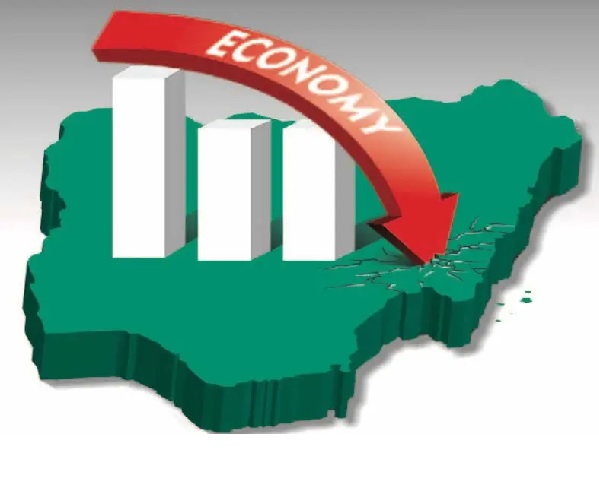Since the return to diplomatic rule in 1999, several administrations at the federal level have sought the most effective strategies to improve the Nigerian economy which had experienced economic stagnation during the military dispensation. Although these national reforms have accomplished some degree of success, there still exist some challenges. This article aims to discuss several strategies that can be employed to help reform the economy of Nigeria. Read on to learn how Nigeria can sustain economic growth and improve its broad development indicators.

How Nigeria’s economy can be reformed would be discussed below:
-
Increasing the Quality of Social Sector Spending
The periods of military rule in Nigeria’s history were characterised by poor economic management which resulted in a prolonged period of economic stagnation, rising poverty levels, and the decline of public institutions. Although there have been 24 years of continuous democratic rule, there are still millions of poor Nigerians. One way to reform Nigeria’s economy is for the government (federal and subnational governments) to spend on pro-poor programs across the federation.
Several pro-poor programs have been created by various administrations, the federal and state governments should increase the quality of social sector spending in their budgets, as well as improve the implementation and monitoring of such projects. States governments can cofinance Millenium Development Goal (MDG)-related projects in their states, while the federal government could introduce grants to states that perform the best in this aspect.
-
Strengthening Domestic Institutions
One of the central challenges Nigeria faces is that of building strong domestic institutions to support long-term growth and development. Several economic literatures have recognized how important strong and functional institutions support economic development, especially in developing nations like Nigeria.
It is, therefore, essential for the policymakers in Nigeria to focus on improving the effectiveness of domestic institutions in the country. When the domestic institutions in the country are strengthened, the day-to-day political configurations will not affect private sector investment decisions. Lawmakers should work to pass legislation that will institutionalize recent economic national reforms measures to ensure transparency guides the operations of domestic institutions, both now and in the future.
-
Expanding and Maintaining Investments in Infrastructure
The deterioration of public infrastructure that is witnessed across the federation is a result of decades of underinvestment in infrastructure. Poor and/or non-existent infrastructure in Nigeria poses several challenges to how business is being run in Nigeria. Generally, the poor state of infrastructure in Nigeria imposes large transaction costs on businesses and reduces the competitiveness of the Nigerian private sector.
Addressing the challenge of the current dearth of infrastructure in Nigeria would require the government to increase the quality and quantity of government spending on infrastructure (a recommended $5B a year for 10 years, at least), as well as a collaboration between the federal and state governments to finance large-scale infrastructure projects. In addition to these measures above, private investments in infrastructure must be encouraged to augment the efforts of the government.
-
Improving the Domestic Business Climate
Private businesses in Nigeria often bear the brunt of uncoordinated and bureaucratic regulatory procedures. It is not uncommon for business owners in Nigeria to experience some issues when starting and/or closing a business, during property registration, and when obtaining licenses.
Fortunately, some reforms have been put in place by the government (both federal and state governments) to improve the business climate in Nigeria. Despite these efforts, there remain some challenges that persist. The policymakers should prioritize passing legislation that improves the domestic climate for doing business in Nigeria. In doing so, economic diversification would be consolidated and employment opportunities created.
-
Focusing on Non-Oil Growth and Employment Generation
Nigeria has depended on oil as the main source of revenue since 1974, neglecting other viable sectors capable of contributing to the GDP, for example, agribusiness. Although oil is largely Nigeria’s source of revenue, the sector is somewhat of an enclave, in the sense that it is geographically limited to the oil-producing regions of the country and employs relatively few people.
Focusing on non-oil growth in Nigeria would help in employment generation and poverty reduction. Though there has been some growth in the non-oil sectors in recent years, the scope of impact on ordinary Nigerians remains limited. To attain substantial non-oil growth, the government should increase investments in those sectors by making access to finance easier (especially for young entrepreneurs), as well as making sure inputs and technology are available. Examples of viable non-oil sectors in Nigeria include agriculture, solid minerals mining, construction, tourism, and cultural and entertainment services.
-
Extending Economic Reforms to Sub-National Regions
It is observed that some well-meaning reforms implemented at the federal level do not get executed at the subnational level. The state and local governments which are typically responsible for nearly half of the consolidated government expenditure sometimes fail to target the delivery of social services as intended by the federal government due to corruption, low capacity, and weakness of institutions at the subnational level.
To ensure the reforms implemented at the federal level are executed at the subnational level, state governments should improve budget transparency, enhance public expenditure management, and concentrate on sectoral growth strategies. With these being put in place at the subnational levels, the impacts of economic reforms implemented at the federal level would be felt by an average Nigerian, regardless of the state of the federation they reside in.
-
Other Measures to Help Reform the Nigerian Economy
Some additional measures can help reform the Nigerian economy for the better. Below is a list of some such measures:
- Privatization of loss-making state-owned enterprises
- Export diversification
- Increased investment in the Nigerian educational system
- Etc.
To ensure Nigeria’s economy keeps making progress, the government (both federal and state governments), further reforms should be implemented from time to time.